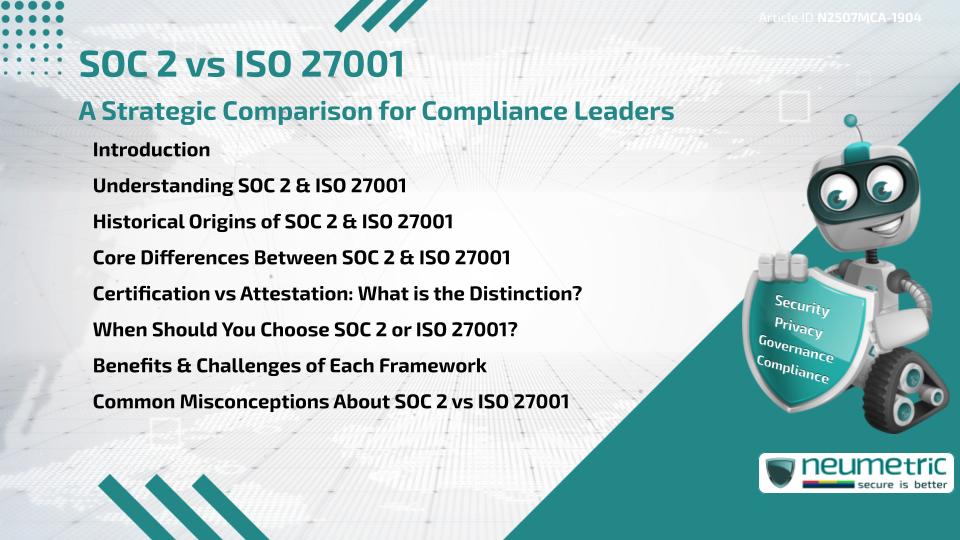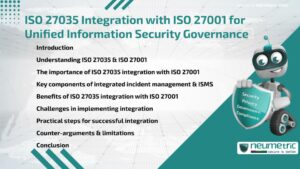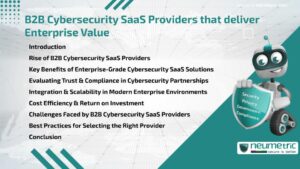Table of Contents
ToggleIntroduction
For Compliance Leaders navigating the landscape of Data Protection, regulatory obligations & Third Party assurance, two names dominate the conversation: SOC 2 & ISO 27001. These frameworks represent distinct approaches to evaluating how Organisations manage Information Security, offering different processes, documentation & assurance models.
The term SOC 2 vs ISO 27001 is more than just a comparison of standards. It represents a strategic decision point-one that shapes Risk posture, Client trust & market competitiveness. This article unpacks their differences, historical development, use cases, benefits & limitations. Whether you operate a Software-as-a-Service [SaaS] platform or oversee compliance for an international enterprise, understanding the SOC 2 vs ISO 27001 debate is vital for informed decision-making.
Understanding SOC 2 & ISO 27001
SOC2 is a Framework developed by the American Institute of Certified Public Accountants [AICPA]. It provides criteria for managing Customer Data based on five Trust Service Principles: Security, Availability, Processing Integrity, Confidentiality & Privacy. SOC 2 reports are the result of an attestation, meaning a licensed Public Accountant evaluates your controls & provides an opinion.
ISO 27001, on the other hand, is an International Standard developed by the International Organisation for Standardization [ISO] & the International Electrotechnical Commission [IEC]. It outlines requirements for establishing, maintaining & continuously improving an Information Security Management System [ISMS]. ISO 27001 Certification is granted by an accredited Certification body after a rigorous Audit process.
Historical Origins of SOC 2 & ISO 27001
SOC 2 emerged in the early 2010s in response to the growing need for trust & assurance in outsourced IT services. As cloud computing expanded & companies entrusted third parties with critical data, AICPA developed SOC 2 to help service providers demonstrate security & operational control through structured reporting.
ISO 27001 traces its roots back to the 1990s when the need for standardised international guidelines around Information Security became clear. Originally based on British Standard BS 7799, it was later adopted as a global ISO Standard in 2005 & most recently updated in 2022. Its objective is to support a consistent, auditable security program applicable across industries & countries.
Core Differences Between SOC 2 & ISO 27001
Understanding SOC 2 vs ISO 27001 begins with recognising their differences in structure & intent:
| Feature | SOC 2 | ISO 27001 |
| Type | Attestation | Certification |
| Jurisdiction | Mainly U.S. | International |
| Scope | Defined by Trust Service Principles | Entire ISMS Framework |
| Audit Entity | CPA or Licensed Auditor | Accredited Certification Body |
| Validity Period | Point in time (Type I) or time-bound (Type II) | Typically three (3) years, with annual surveillance |
| Customisation | Tailored to services & controls | Based on standardised requirements |
SOC 2 provides flexibility & narrative detail, whereas ISO 27001 is more prescriptive & process-oriented. SOC 2 focuses on assurance for Stakeholders like Clients & Partners. ISO 27001 emphasises internal Governance & compliance maturity.
Certification vs Attestation: What is the Distinction?
A common misunderstanding in the SOC 2 vs ISO 27001 conversation is the nature of the result.
- SOC 2 Attestation: A report issued by an independent Certified Public Accountant [CPA] that includes a detailed opinion on how controls meet specific criteria. This report provides assurance, but is not a certification.
- ISO 27001 Certification: A formal certificate issued after successful Audit against ISO 27001 standards by a recognised Certification body. This Certification is valid for a fixed period & implies compliance with a global Security Framework.
The attestation model offers more tailored insight, whereas Certification carries more weight in regulated or multinational contexts.
When Should You Choose SOC 2 or ISO 27001?
The right Framework depends on business goals, geography & Customer expectations.
Choose SOC 2 if:
- You are a U.S.-based service provider.
- Your clients demand Trust Service Principle alignment.
- You want a customisable report based on actual controls.
- You are in the early stages of security program development.
Choose ISO 27001 if:
- You serve international markets.
- You want to formalise an ISMS across your Organisation.
- Your industry requires a globally recognised standard.
- you are committed to Continuous Improvement & Audit cycles.
For some Organisations, adopting both may offer the best of both worlds: localised assurance [SOC 2] & international credibility [ISO 27001].
Benefits & Challenges of Each Framework
SOC 2 Benefits
- Flexibility in defining controls.
- Greater alignment with U.S. contractual requirements.
- Easier initial implementation for startups & SMEs.
- Highly narrative reports aid Client understanding.
SOC 2 Challenges
- Less globally recognised.
- Subject to CPA availability & interpretation.
- Must be renewed annually to maintain relevance.
ISO 27001 Benefits
- Recognised in over one hundred (100) countries.
- Structured ISMS improves internal Governance.
- Certification increases credibility with regulators & partners.
- Encourages long-term Information Security planning.
ISO 27001 Challenges
- Rigid documentation & policy requirements.
- Higher upfront cost & Audit preparation time.
- Requires Organisation-wide participation & change management.
Both frameworks demand resource commitment & leadership engagement, but the returns in Risk Mitigation & Client trust can be significant.
Common Misconceptions About SOC 2 vs ISO 27001
Several myths surround the SOC 2 vs ISO 27001 decision:
- “They are interchangeable”: Not true. Each serves different assurance needs & audiences.
- “SOC 2 is easier”: While more flexible, SOC 2 still requires rigorous documentation & control maturity.
- “ISO 27001 is only for large enterprises”: Many small & mid-sized companies pursue ISO 27001 to differentiate themselves & access new markets.
- “One Framework is always better”: The optimal choice depends on your clients, geography & business strategy.
Clearing up these misconceptions helps Compliance Leaders align their Certifications with real Business Objectives.
Takeaways
- SOC 2 vs ISO 27001 reflects a strategic compliance choice, not just a checklist comparison.
- SOC 2 is better suited for the U.S.-focused businesses needing flexible assurance.
- ISO 27001 offers structured, internationally recognised Certification for long-term Governance.
- Understanding the Audit model-attestation versus certification-is key to setting Stakeholder expectations.
- Each Framework brings distinct strengths & some Organisations may benefit from both.
FAQ
What is the main difference between SOC 2 & ISO 27001?
SOC 2 is an attestation report focused on operational controls in the U.S., while ISO 27001 is a global Certification for Information Security management systems.
Which is more recognised internationally?
ISO 27001 has broader global recognition & is often preferred in Europe, Asia & multinational markets.
Is SOC 2 a certification?
No. SOC 2 results in an attestation report, not a formal certificate. It provides auditor opinion on system controls.
How long does ISO 27001 Certification last?
It typically lasts three (3) years, with annual surveillance Audits required to maintain Certification status.
Is ISO 27001 mandatory for any industries?
While not legally mandatory in most cases, ISO 27001 is often required or strongly recommended in sectors like Finance, Healthcare & Government contracting.
Need help for Security, Privacy, Governance & VAPT?
Neumetric provides organisations the necessary help to achieve their Cybersecurity, Compliance, Governance, Privacy, Certifications & Pentesting needs.
Organisations & Businesses, specifically those which provide SaaS & AI Solutions in the Fintech, BFSI & other regulated sectors, usually need a Cybersecurity Partner for meeting & maintaining the ongoing Security & Privacy needs & requirements of their Enterprise Clients & Privacy conscious Customers.
SOC 2, ISO 27001, ISO 42001, NIST, HIPAA, HECVAT, EU GDPR are some of the Frameworks that are served by Fusion – a SaaS, multimodular, multitenant, centralised, automated, Cybersecurity & Compliance Management system.
Neumetric also provides Expert Services for technical security which covers VAPT for Web Applications, APIs, iOS & Android Mobile Apps, Security Testing for AWS & other Cloud Environments & Cloud Infrastructure & other similar scopes. Reach out to us by Email or filling out the Contact Form…





